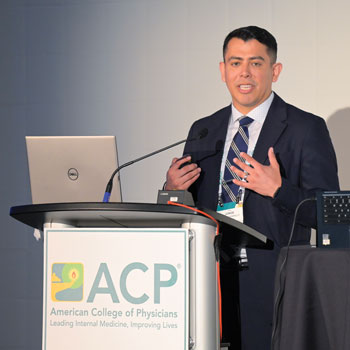Semaglutide shortage over, counterfeits removed
This column reviews recent recalls, alerts, and approvals.
Recalls and warnings
Removal of Abbott's HeartMate mobile power unit from the market due to instances of sudden power loss. Abbott has received reports of incidents in which the mobile power unit experienced sudden, unexpected performance issues such as not turning on, shutting down unprompted, or suddenly turning off and restarting, with the system controller indicating a yellow wrench alarm or “No External Power” alarm. Abbott has not reported any serious injuries or deaths associated with this issue.
An expansion of a recall of the SpeedControl Dial, a wired control option for the SmartDrive MX2+ power assist device by Max Mobility/Permobil, due to safety and performance concerns. The recall was originally initiated on December 20, 2024, and has been expanded to address recalled product that may have been inadvertently comingled with the redesigned product and shipped after that date. Max Mobility/Permobil has received 781 associated complaints, including five serious injuries (a fractured hip, fractured tibia, fractured malleolus bone, broken ribs, and a concussion).
An early alert that the FDA is aware that BD and its subsidiary Bard Access Systems have issued a letter to affected customers recommending certain unused PowerPICC intravascular catheters be removed from where they are used or sold. In-use PowerPICC intravascular catheters have updated instructions, specifically the 4 Fr. single Lumen PowerPICC and SOLO and non-SOLO versions. BD has identified an increase in material fatigue leaks associated with the affected catheters, mostly seen as a transverse/circumferential crack in the catheter body. There have been 10 serious injuries associated with this issue.
An alert that the FDA is aware that Conavi has issued a letter to affected customers recommending certain Novasight hybrid catheters be removed from where they are used or sold. In one reported incident, the sheath of a Novasight hybrid catheter detached during use and was left in the patient's body. The full sheath was able to be removed from the patient without further injury. The company has not reported any additional incidents or injuries associated with this issue.
A class I recall of aortic root cannulas by Medtronic due to the risk for unexpected loose material in the male Luer used in the cannula. The loose material has the potential to become dislodged and cause serious adverse health consequences, including injuries caused by delayed therapy, stroke, and death. No injuries have been reported.
Classification of Q’Apel Medical, Inc.'s voluntary recall of 1,617 units of its 072 aspiration system as class I. Q’Apel has submitted three reportable events for the product to date, including a reported tip detachment, a vessel rupture, and a vasospasm.
A recall of two lots of ropivacaine hydrochloride injection, USP, 500 mg/100 mL infusion bags by Amneal Pharmaceutical LLC, to the hospital/user level as the products may contain an inert fiber identified as polypropylene fibers from the IV bag. Introduction of polypropylene particulates into the epidural space (or inadvertent administration into the intrathecal space) may result in a variety of adverse events. The company has received no reports of adverse events or injuries related to this recall.
A recall of intraocular lenses (IOLs) by Bausch + Lomb Corporation on its enVista platform in response to an increased number of reports of toxic anterior segment syndrome. The recall includes all lots of enVista Aspire, enVista Aspire Toric, enVista Envy, and enVista Envy Toric, as well as enVista monofocal and enVista monofocal Toric IOL models in the U.S.
An alert that Novo Nordisk is aware of several hundred units of counterfeit semaglutide injection, 1 mg, in the U.S. drug supply chain. The FDA seized the identified counterfeit products on April 9 and advises patients, wholesalers, retail pharmacies, and health care professionals to check the semaglutide products they have received and not use, distribute, or sell products labeled with lot number PAR0362 and a serial number starting with the first eight digits 51746517. The FDA is aware of six adverse event reports associated with this lot, none of which appear to be related to the counterfeit product. All six adverse events were reported by Novo Nordisk.
An alert to health care professionals and laboratory staff of potential false-positive results when using ASP Global's RAM scientific SAFE-T-FILL microcapillary blood collection tubes with the LeadCare testing systems. These tests may overestimate blood lead levels and give inaccurate results when processing capillary blood samples collected in the ASP Global's RAM scientific SAFE-T-FILL tubes. The FDA is recommending that ASP Global RAM scientific SAFE-T-FILL tubes not be used with the LeadCare testing systems while this issue is being investigated.
An alert to health care professionals, compounders, and consumers of potential risks associated with compounded topical finasteride products. FDA is aware of some compounders and telemedicine platforms that market topical formulations of finasteride either as a single active ingredient or in combination with other active ingredients, such as finasteride combined with minoxidil, to treat hair loss. Currently, there is no FDA-approved topical formulation of finasteride. Compounded topical finasteride products do not have FDA-approved labeling.
Miscellaneous
New commissioner sworn in. Martin A. Makary, MD, MPH, a surgeon, was sworn in as FDA commissioner on April 1.
A policy clarification for compounders as the national supply of glucagon-like peptide-1 agonists begins to stabilize. For a state-licensed pharmacy or physician compounding dispensing or distributing semaglutide injection products under section 503A of the FD&C Act, the period of enforcement discretion has ended. For outsourcing facilities compounding, distributing, or dispensing semaglutide injection products under section 503B, the FDA does not intend to take action for violations of the FD&C Act arising from conditions that depend on semaglutide injection products' inclusion on the FDA's drug shortage list until May 22.
Approvals
Penpulimab-kcqx with cisplatin or carboplatin and gemcitabine for first-line treatment of adults with recurrent or metastatic non-keratinizing nasopharyngeal carcinoma (NPC). The FDA also approved penpulimab-kcqx as a single agent for adults with metastatic non-keratinizing NPC with disease progression on or after platinum-based chemotherapy and at least one other prior line of therapy. Median progression-free survival in a randomized double-blind trial was 9.6 months in the penpulimab-kcqx arm and 7.0 months in the placebo arm, with 31% and 11% of patients alive and progression-free after 12 months of follow-up, respectively. The most common adverse reactions were nausea, vomiting, hypothyroidism, constipation, decreased appetite, decreased weight, cough, COVID-19 infection, fatigue, rash, and pyrexia. The treatment received an orphan-drug designation.
Nivolumab (Opdivo) with ipilimumab (Yervoy) for patients ages 12 years and older with unresectable or metastatic microsatellite instability-high (MSI-H) or mismatch repair-deficient (dMMR) colorectal cancer (CRC). The FDA also converted the accelerated approval to regular approval for single-agent nivolumab for patients ages 12 years of age and older with MSI-H or dMMR metastatic CRC that has progressed following fluoropyrimidine, oxaliplatin, and irinotecan. A randomized, three-arm, open-label trial found an overall response rate of 71% in the nivolumab plus ipilimumab arm and 58% in the nivolumab arm. The most common adverse reactions were fatigue, diarrhea, pruritus, abdominal pain, musculoskeletal pain, and nausea. The application was granted an orphan-drug designation. Nivolumab with ipilimumab was also approved for the first-line treatment of adults with unresectable or metastatic hepatocellular carcinoma.




